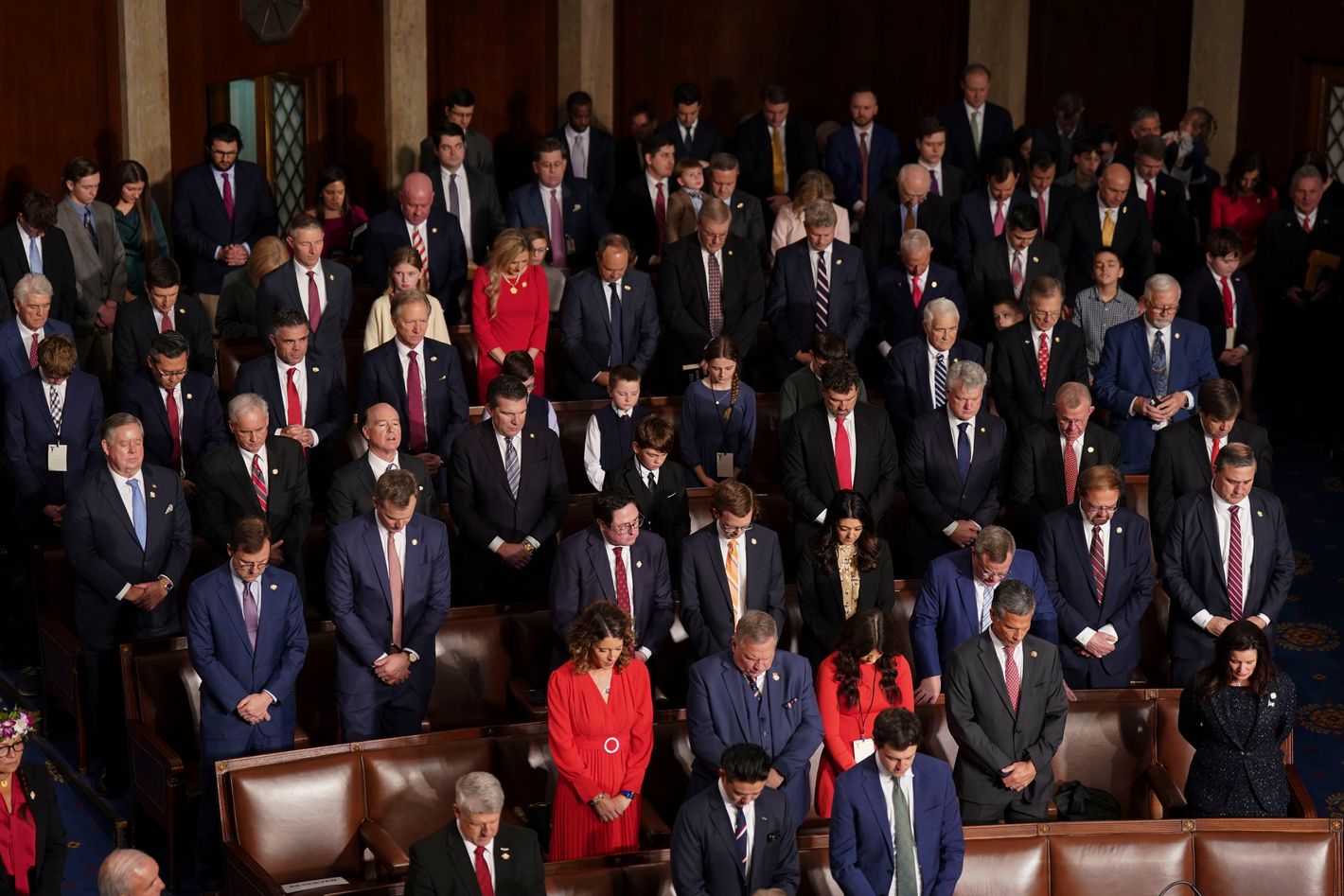Kent Nishimura/Bloomberg via Getty Images
We justifiably hear a lot about the Christian Nationalist belief system of many key figures in the MAGA movement and the Republican Party. No less a figure than House Speaker Mike Johnson is very cozy with those who think America is nothing if not a bastion of officially recognized conservative Christian belief, commissioned by God Almighty to spread Christ’s gospel until it conquers a sinful world. And there’s not much question that a significant element of Donald Trump’s base derives from a powerful conviction that the white Christian personalities and ethos associated with so much of this country’s history represents the “American greatness” that needs to be restored “again.”
Trump won under 50 percent of the popular vote in the 2024 election, and his party has a razor-thin majority in Congress. So it’s not surprising that Pew’s latest survey of the religious affiliations of the 119th Congress doesn’t show some big trend toward orthodox conservative Christian believers. But there’s still a sizable gap between Congress and the country as a whole, particularly when it comes to self-identification as “Christian”:
[A]t 87%, Christians still make up the lion’s share of the Congress, far exceeding the Christian share of all U.S. adults, which stands at 62% after several decades of decline. In 2007, 78% of American adults were Christian, according to Pew Research Center’s Religious Landscape Study from that year, and in the early 1960s more than nine-in-ten U.S. adults were Christian, according to historical Gallup polling.
Congressional Christianity is more congruent with the America of the early 1960s than of the country Congress currently represents. And that’s true when it comes to the rapidly rising percentage of Americans who deny any religious affiliation at all:
Nearly three-in-ten Americans (28%) are religiously unaffiliated, meaning they are atheist or agnostic or say their religion is “nothing in particular.” But less than 1% of Congress falls into this category.
Some additional findings from Pew are of considerable value to political observers. During the 2024 presidential contest, Trump notoriously accused American Jews who voted Democrat of self-hatred, as the Associated Press reported:
Trump, who last week became the Republican Party’s presumptive nominee, went on to charge: “Any Jewish person that votes for Democrats hates their religion. They hate everything about Israel and they should be ashamed of themselves because Israel will be destroyed.”
Yet somehow, of the 32 Jewish members of Congress, 29 are Democrats, including all nine Jewish senators and 20 of 23 House members.
Congress doesn’t reflect America’s religious profile all that closely. But it’s even less reflective of the MAGA vision of America as a conservative Christian nation.

